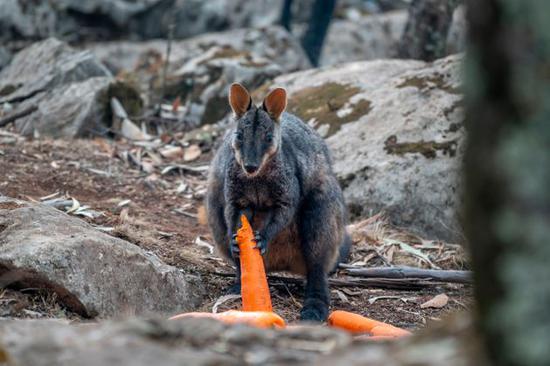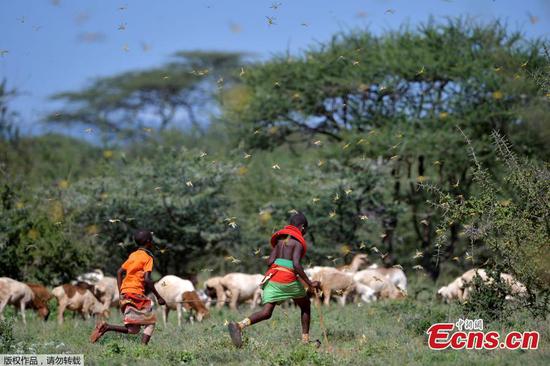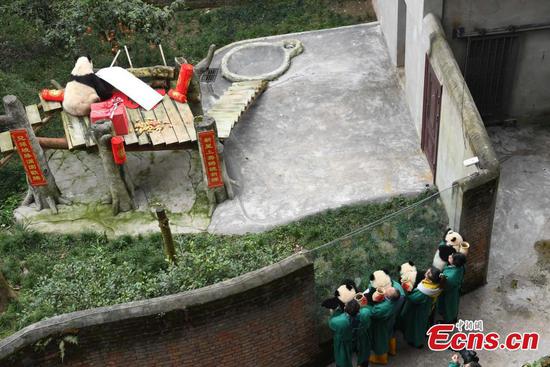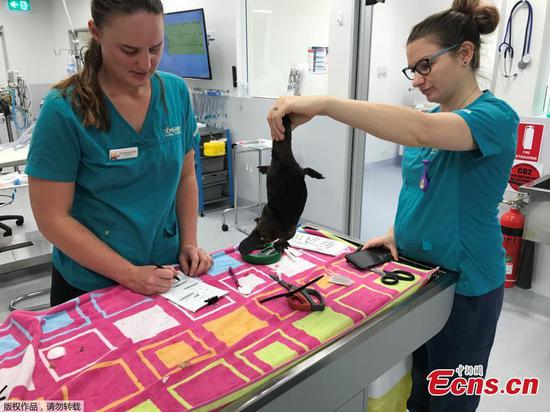
A wallaby eats a carrot airdropped in bushfire-hit areas. (Photo courtesy of NSW Department of Planning, Industry and Environment)
Over 2,000 kg of carrots and sweet potatoes have been airdropped to endangered Australian brush-tailed rock-wallabies since the start of the new year, as wildlife authorities scramble to deal with the country's unprecedented bushfire crisis.
The marsupials found on the east coast of Australia have been ravaged by recent wildfires and are in desperate need of food.
To tackle the problem, wildlife conservation group Aussie Ark and the New South Wales state government have begun flying in vegetables.
"Rock wallabies have lost nearly 80 percent of their habitat due to fire," Aussie Ark President Tim Faulkner said on Tuesday.
"How they recover from this is an uncertainty, but food drops, camera monitoring and intervention at a species level for insurance populations are critical."
To make matters worse for the kangaroo's slightly smaller cousins, Faulkner said areas that haven't been fire-affected are still terribly affected by the drought.
"Whilst there are encouraging signs that food drops are working and there is still available water in some areas, to find deceased wallabies is an absolute kick in the guts," he said.
"The state department response is most welcome and is buying the wallabies time until the conditions improve."
"Food drops can by time, giving the wallabies nourishment and hydration until the rain comes."
With specialist facilities also in place, Aussie Ark has the ability to implement an "emergency intervention" if needed, where it could shelter and feed up to 45 wallabies at each of its seven rehabilitation centers.
But Faulkner was hopeful that the conditions will start to improve.
"We can keep them safe, we can keep them in sanctuaries but they belong in the wild," he said.


















































